I wrote a piece of code, in order to test the ndk-stack Here is the code fragment
libtest.so
std::vector<int> testVec;
testVec.at(500);

But I get was incomplete stack
********** Crash dump: **********
Build fingerprint: 'MI/casablanca_icntv/casablanca:4.2.2/CADEV/1253:user/release-keys'
pid: 24989, tid: 24989 >>> com.ktcp.video <<<
signal 11 (SIGSEGV), fault addr deadbaad
Stack frame #00 pc 0001a852 /system/lib/libc.so: Routine ????:0
Stack frame #01 pc 00018190 /system/lib/libc.so (abort): Routine ????:0
Stack frame #00 pc 0001a852 /system/lib/libc.so: Routine ????:0
Stack frame #01 pc 00018190 /system/lib/libc.so (abort): Routine ????:0
Stack frame #00 pc 0001a852 /system/lib/libc.so: Routine ????:0
Stack frame #01 pc 00018190 /system/lib/libc.so (abort): Routine ????:0
Stack frame #00 pc 0001a852 /system/lib/libc.so: Routine ????:0
Stack frame #01 pc 00018190 /system/lib/libc.so (abort): Routine ????:0
^C^C

In the stack did not see my code, incomplete stack
How to fix it